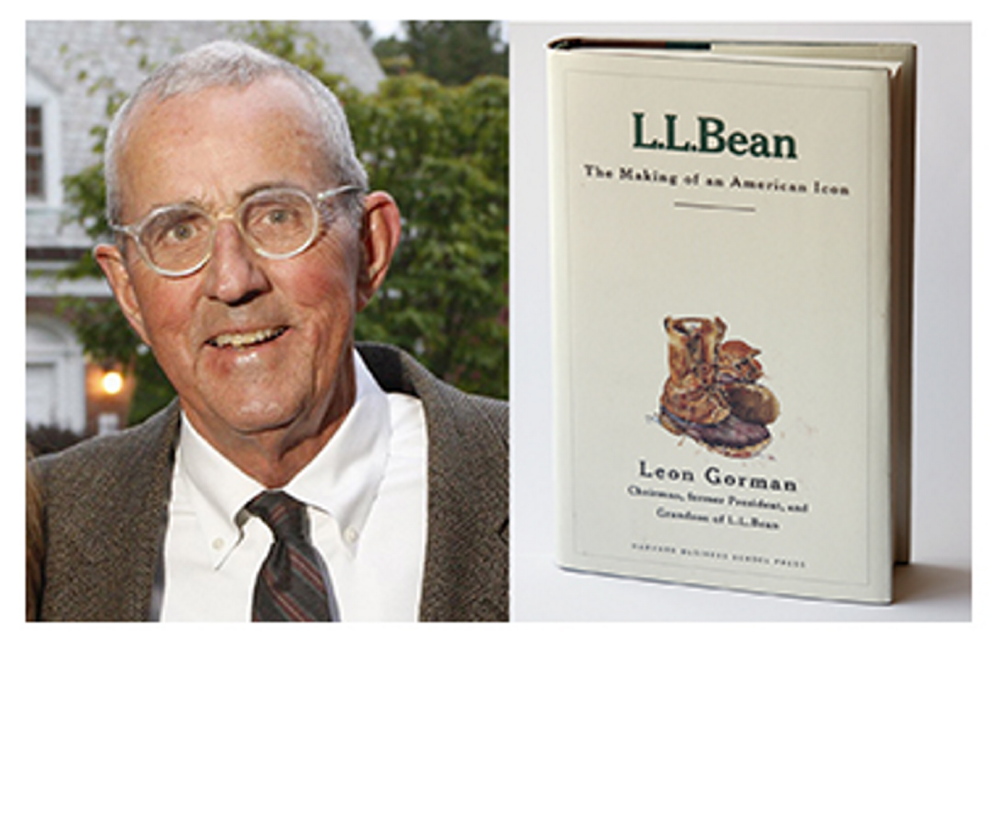Leon Gorman will be remembered for a lot more than the millions of rubber-bottom boots his company sold under his guidance for nearly 50 years.
The retired president and chairman of the board of L.L. Bean, who died Thursday at the age of 80, turned a troubled family business into an industry giant that revolutionized mail-order shopping, decades before the e-commerce revolution took off.
He built a company that took advantage of the latest technology while retaining an old-fashioned commitment to customer satisfaction that survived every business fad that came along. The company’s pledge to stand behind every product it sold translated into millions of sales, setting the standard for other companies that depend on customers willing to pay for items they’ve seen only in a catalog or on their computer screen.
But other successful businesses have experienced sustained growth, and few of their executives will leave the mark that Gorman made at L.L. Bean. His contributions went beyond the company’s bottom line.
He created thousands of jobs and took good care of his employees, who repaid him with hard work and loyalty. Bean is a famously good place to work, not just for annual profit-sharing bonuses, but also for family-friendly policies, on-site fitness centers and opportunities to buy returned items at well below bargain prices.
Gorman took his role as a leader of the business community seriously, too, giving his financial and moral support to causes that affected the land and people of his beloved Maine. And although he was quiet by nature, he spoke up when he thought he could make a difference.
He lent his support to environmental organizations, land conservation groups that preserved public access to outdoor recreation, and the social service agency Preble Street. He not only donated to build a shelter for homeless teens in Portland, but he also cooked breakfast in the soup kitchen once a week for 12 years.
It’s not that Gorman didn’t care about making a profit: He built his company from $5 million in annual sales to $1.6 billion by the time he retired and was consistently listed as the richest person in the state. You don’t do that by not caring.
But profits were not all that he cared about. He took care of his customers, his employees and his community in ways that many successful business people don’t bother with.
It is strange that as the economy produces more millionaires and billionaires, the kind of corporate citizenship that Gorman represented is not growing as fast. Fortunes are made in fields such as banking and finance that don’t create many jobs or build communities. Millions of dollars are donated to political campaigns and corporate lobbying, but not on improving the lives of ordinary people.
The iconic L.L. Bean boot has continued to be a big seller over the decades, even though it has changed very little, while other fashions have come and gone. For many people, it is a concrete expression of the values that make Maine different — the boots are plain, practical and show a reverence for the past. Making them a universally known product — sometimes even a high-fashion item — would be a great legacy for any businessman.
But at least in Maine, Gorman will be remembered for so much more.
Send questions/comments to the editors.



Comments are no longer available on this story